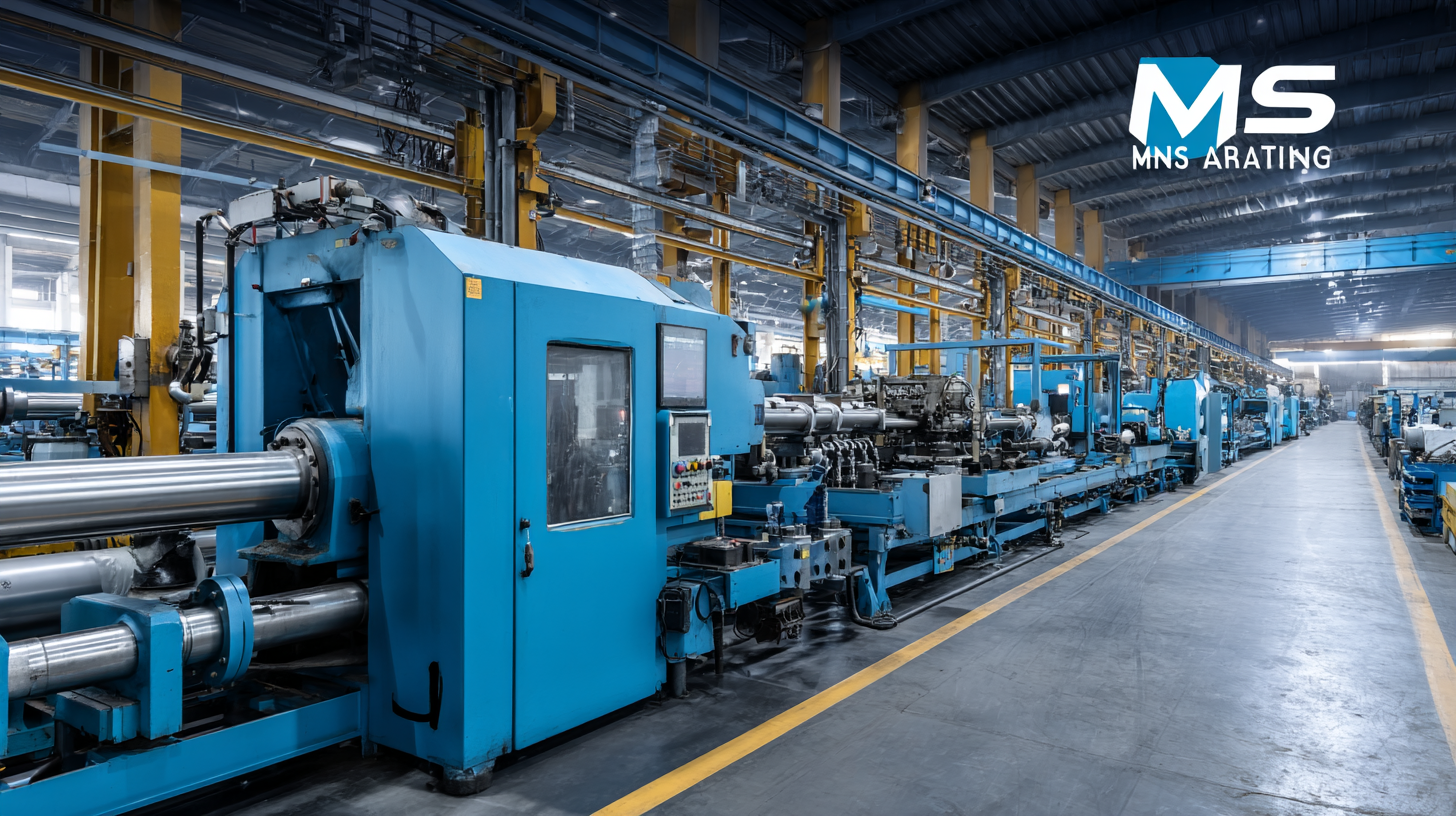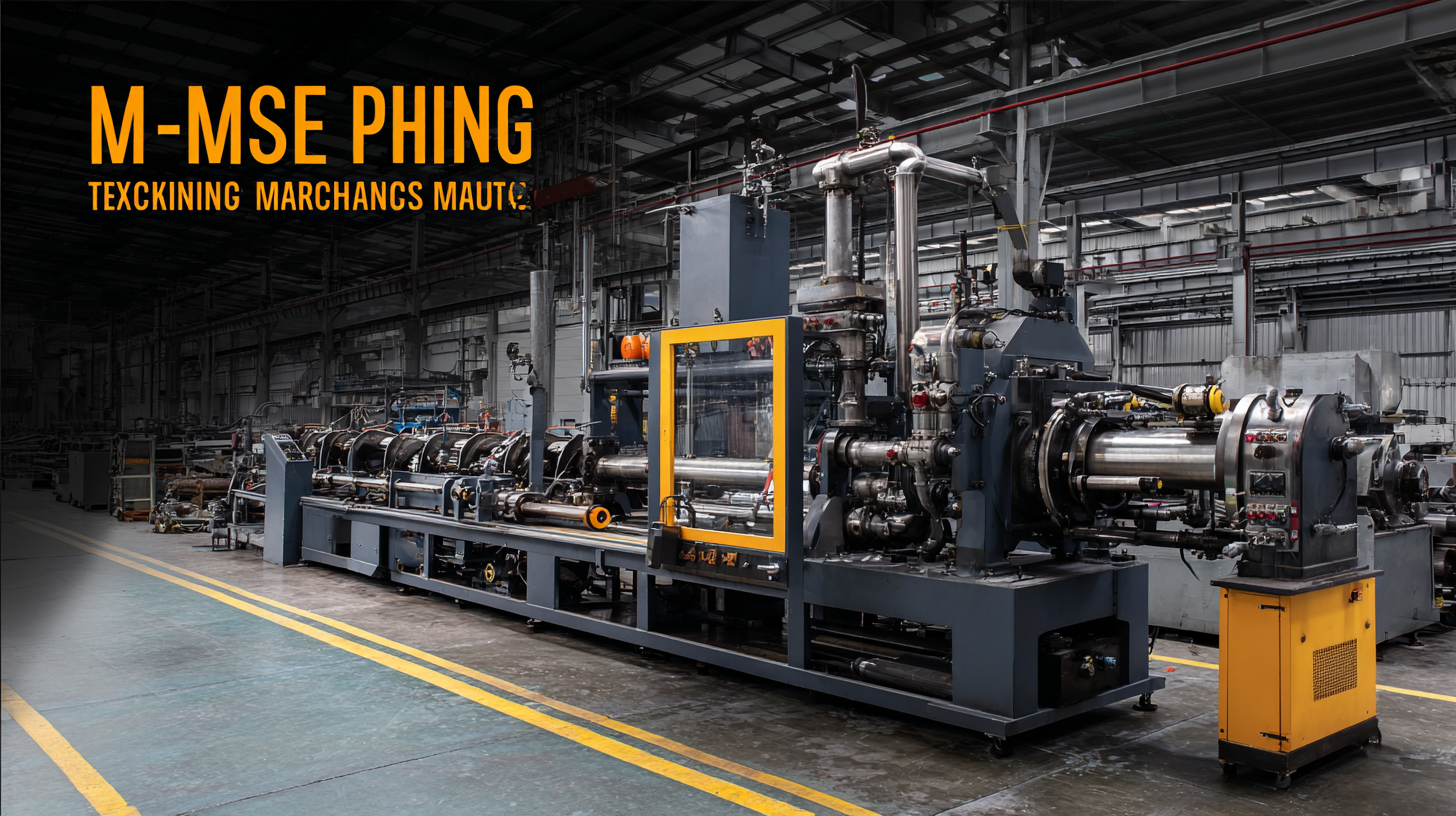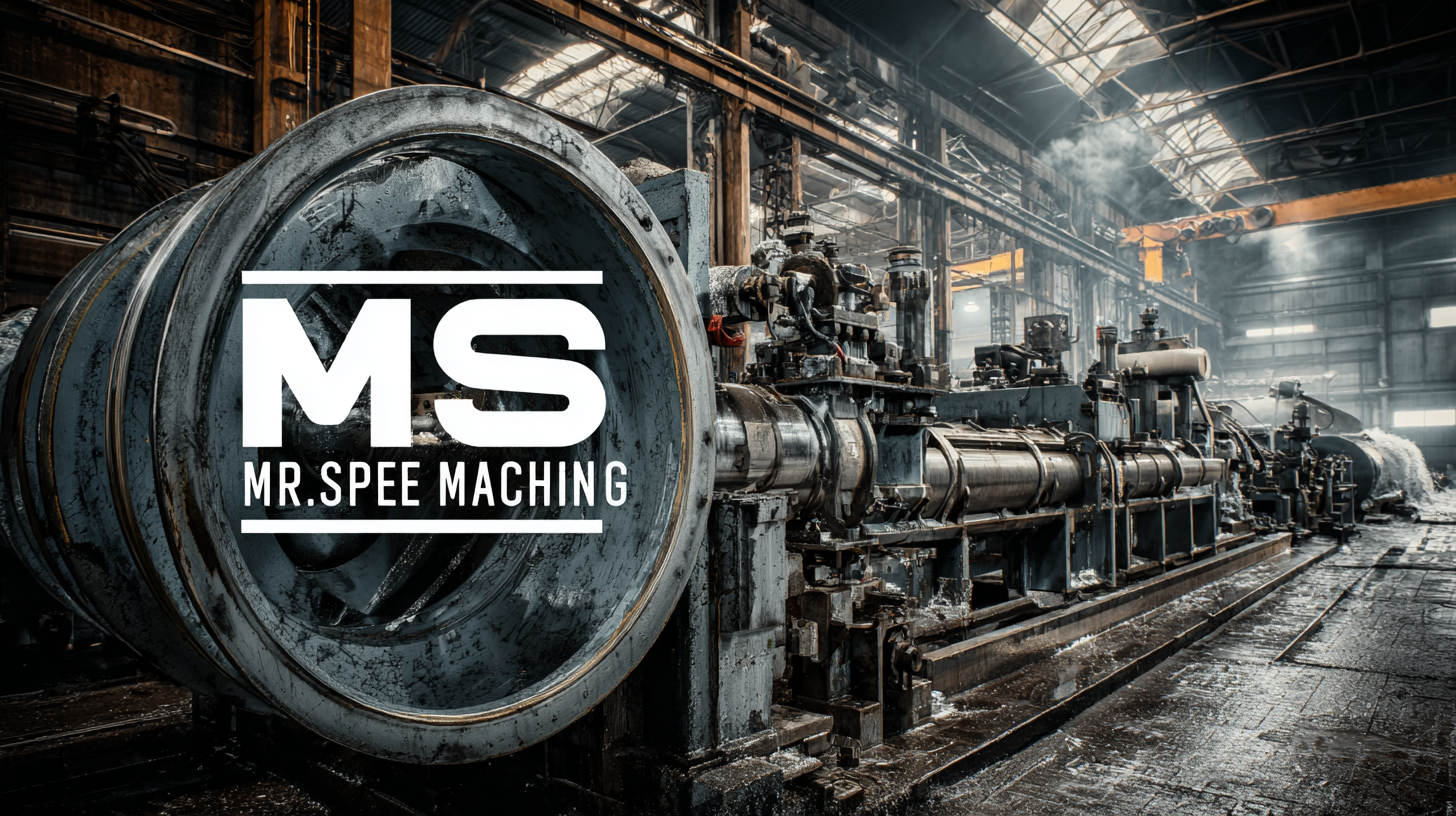
In the ever-evolving landscape of manufacturing, choosing the right MS Pipe Making Machine Manufacturers is crucial for ensuring efficiency and quality in production processes. According to a recent industry report by Research and Markets, the global pipe manufacturing market is projected to grow at a CAGR of 6.5% through 2026, driven by increasing demand in construction and infrastructure development. This underscores the importance of selecting manufacturers that not only offer advanced machinery but also provide tailored solutions that meet the specific needs of businesses.

With the variety of options available, understanding key factors such as technology, after-sales service, and customization capabilities is essential for manufacturers aiming to enhance productivity and maintain a competitive edge in this growing market.
When selecting manufacturers for MS pipe making machines, it's crucial to consider several key factors that directly influence the effectiveness and reliability of the production process. Firstly, the manufacturer's experience and expertise play a significant role; an established company with a solid track record is more likely to provide machines that meet industry standards and address potential issues effectively. Additionally, examining the technology used in the manufacturing process is essential. Innovations such as modern automation and precision engineering can dramatically improve the quality and efficiency of MS pipes.

Another critical factor is the manufacturer’s commitment to reducing defects and enhancing performance. Insights from recent studies demonstrate that methodologies like Lean Six Sigma significantly reduce defects and optimize manufacturing processes. Choosing a manufacturer that employs such methodologies can lead to improvements in product quality, ultimately resulting in lower long-term costs. Additionally, the availability of after-sales support and maintenance services should not be overlooked, as they are vital for ensuring the longevity and reliability of the machines within a demanding production environment.
Modern MS pipe making machines incorporate several advanced features and technologies that significantly enhance their efficiency and productivity. One of the most notable innovations is the implementation of automation and smart controls, which optimize the production process and reduce human error. These systems allow for real-time monitoring and adjustments, ensuring consistent quality and minimizing downtime. The use of digital interfaces simplifies operation and maintenance, making it easier for operators to manage complex tasks with precision.
Another critical technology is the integration of high-speed welding techniques, such as TIG or laser welding, which improve joint strength and reduce production time. These advanced welding processes not only ensure durability but also enhance the overall aesthetic of the finished pipes. Additionally, the incorporation of energy-efficient motors and systems aids in reducing operational costs while adhering to sustainability practices. Manufacturers that prioritize these cutting-edge technologies position themselves favorably in a competitive market, offering clients reliable and cost-effective solutions for their piping needs.
| Feature/Technology | Description | Impact on Production | Efficiency Percentage |
|---|---|---|---|
| Automatic Pipe Cutting | Automated systems for precision cutting of pipes | Reduces labor costs and improves accuracy | 85% |
| Advanced Welding Technology | Utilizes laser and ultrasonic welding methods | Enhances joint strength and reduces waste | 90% |
| Quality Control Systems | Integrated inspection modules using AI | Ensures product consistency and compliance | 95% |
| Energy Efficient Drives | Utilizes variable frequency drives for motors | Reduces energy consumption and operational costs | 80% |
| Modular Machine Design | Allows for customizable configurations | Facilitates scaling and adaptation to market demands | 88% |
When it comes to selecting the best manufacturers for MS pipe making machines, a comparative analysis of leading brands reveals key differences in technology, efficiency, and customization options. Brands such as Jindal, Metcom, and APL Apollo stand out for their innovation and reliability. Jindal, for instance, integrates advanced automation features that significantly increase production speed and reduce labor costs, making it a favored choice among large scale manufacturers.
On the other hand, Metcom’s machines are known for their versatility, capable of producing various pipe sizes with minimal adjustments. This flexibility is particularly beneficial for businesses that need to address diverse market demands quickly. Meanwhile, APL Apollo focuses on high-quality output and energy efficiency, providing solutions that not only meet industry standards but also promote sustainability. By analyzing these offerings, manufacturers can make informed decisions to enhance their production capabilities while aligning with their unique operational needs.
In the manufacturing industry, particularly for machinery like MS pipe making machines, after-sales support is critical in establishing long-term relationships with customers. Effective after-sales services not only enhance customer satisfaction but also play a significant role in driving repeat business and building brand loyalty. As manufacturers begin to recognize the importance of these services, they can leverage them to differentiate themselves in a competitive market. For instance, providing maintenance, spare parts, and timely technical support can ensure that customers feel valued and supported throughout their machinery's lifecycle.
Additionally, the growing emphasis on aftermarket services aligns with broader industry trends that prioritize revenue diversification. Companies that integrate robust after-sales strategies not only increase their income but also enhance their operational efficiency. As highlighted in recent data, organizations offering comprehensive aftermarket services experience higher margins and can better navigate challenges posed by disruptive events, such as those seen during the COVID-19 pandemic. By adopting a proactive approach to after-sales support, manufacturers can solidify their market presence and respond more effectively to evolving customer needs.
When selecting manufacturers for MS pipe making machines, cost-effectiveness is a crucial factor that often dictates the purchasing decision. Balancing quality with budgetary constraints can pose a challenge for businesses looking to invest in this equipment. High-quality machines typically come with a higher price tag, but it’s essential to recognize that the long-term benefits of investing in superior technology can outweigh the initial costs. Reliable machines reduce downtime, minimize maintenance expenses, and increase production efficiency, ultimately leading to greater profitability.

Moreover, when evaluating the cost-effectiveness of MS pipe making machines, it’s important to consider the overall value rather than just the sticker price. Factors such as the machine's lifespan, warranty, and the availability of customer support play significant roles in this equation. A slightly more expensive machine that comes with robust support and a strong warranty can be a better investment than a cheaper alternative that may lead to more frequent repairs or operational issues. Therefore, businesses should conduct thorough research and partner with reputable manufacturers who demonstrate a commitment to quality while offering competitive pricing, ensuring they receive the best return on their investment.
